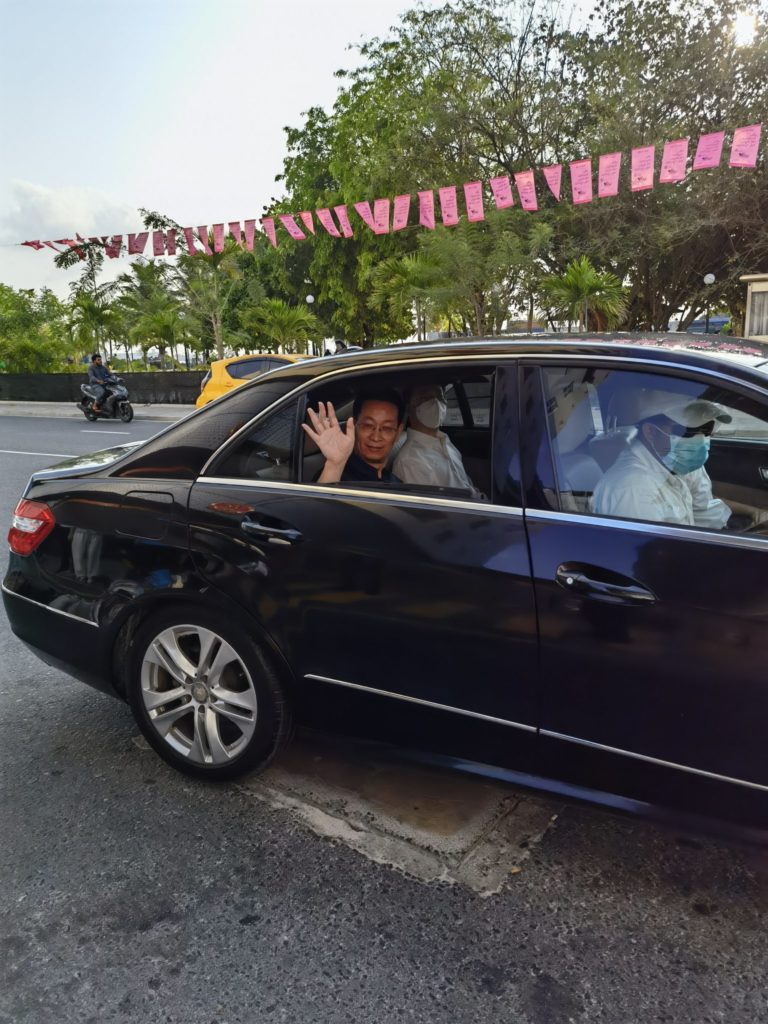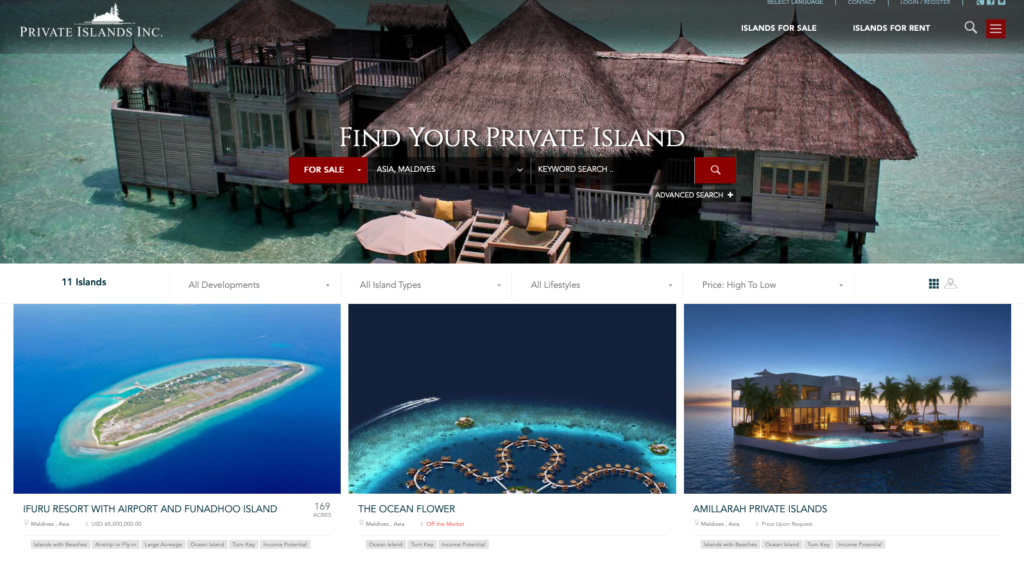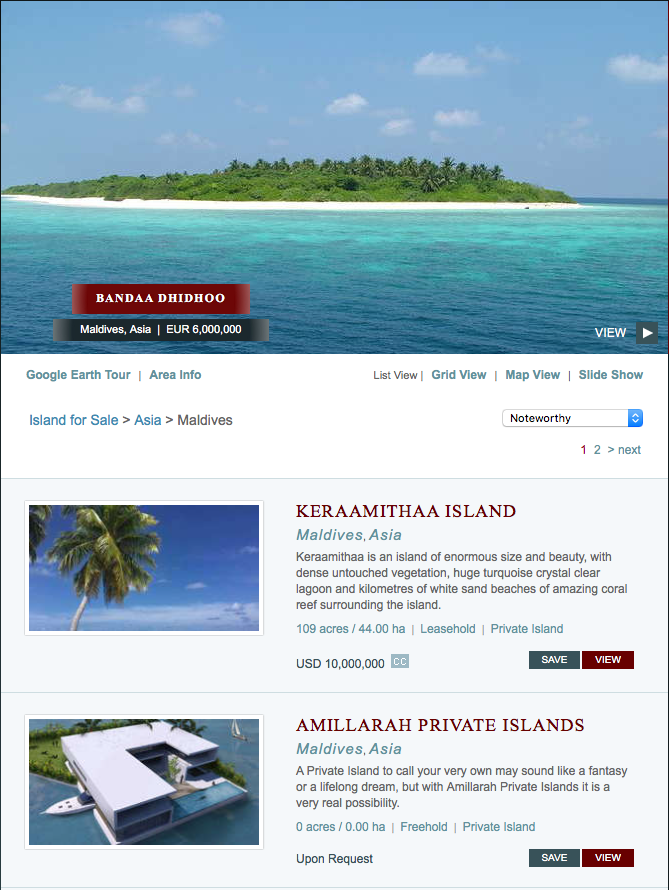The Silk Road to Addu
by Azra Naseem

On a rainy afternoon at the end of October 2020, the Secretary of State of the United States, Michael Pompeo, visited the Maldives to announce plans to open an American Embassy in Male’, the capital of the Maldives. Less than a month before, on 10 September the Maldives and the U.S. signed a defence agreement to “deepen engagement and cooperation in support of maintaining peace and security in the Indian Ocean.” The terms of the agreement have not been publicly disclosed but both sides committed to “a free and open Indo-Pacific that promotes the security and prosperity of all nations in the region”. Days after, Pompeo was in Male’ pledging U.S. aid to help Maldivians meet the challenges of climate change, promising scholarships for Maldivian students in the U.S., hinting at future U.S. business investments in the Maldives, and excited at cooperating with the Maldives in the “good work that democracies do together.”
Pompeo’s rushed visit to the Maldives came just six days before the U.S. Presidential Elections in which a continuation of the Trump Administration was far from assured. The Maldives is a developing nation, making itself a likely name on Trump’s list of ‘shithole countries’. The Maldives also identifies itself as a ‘100 per cent Muslim’ country. In early 2017 Trump signed an Executive Order so clearly aimed at restricting Muslims travelling to the U.S. that it became known as the Muslim Ban. Trump also described terrorism as an ‘Islamic threat’, and has pointed to mosques as breeding grounds for hatred. Conservative Islamic beliefs are widespread in modern Maldives and, at the height of the conflict in Syria and the ISIS in Iraq, the highest number of foreign fighters per capita in the region came from the Maldives. Pompeo also made another pledge: to assist the Maldives in meeting the challenges of climate change. Trump has been vocal on his doubts about climate science, and has described climate change as ‘mythical’, ‘non-existent’ and a ‘hoax’. Pompeo views it as a business opportunity. In an interview with a Maldivian TV station he described the Paris Agreement, from which he withdrew the United States, as ‘a joke’. If the sea-levels rise as most scientists predict, the Maldives would be one of the first countries in the world to sink, making environmental refugees of its entire population. Yet here were the foreign ministers of the two countries, avowing cooperation across vast ideological divides.
Why?
The question was not put to Secretary Pompeo who was welcomed with open arms by the Maldives government and a somewhat fawning press. No one asked why the US would want an embassy in the Maldives. It has never really been interested in Maldivian affairs—the U.S. rarely has friends, it has interests. And this tiny little island archipelago in the Indian Ocean with little to offer in terms of material wealth or geostrategic advantages held little interest for the U.S. It has happily managed to conduct all its relations with the Maldives through the US Embassy in Sri Lanka with a tiny budget—often a few hundred thousand dollars a year in total—and one Maldivian Policy Officer. Most of the budget allocated to the Maldives goes back to the US anyway, paid in grants to American democracy think-tanks and NGOs that occupy Maldivian civil society space often at the expense of local ones.
Pompeo’s rushed visit didn’t allow questions to be asked, even if a journalist were so inclined. As usual, the Maldivian government was happy to hide the answers. Foreign Minister Abdulla Shahid joked with Pompeo about how the rushed visit left him deprived of a visit to the Maldives’ luxury tourist islands. The real Maldives, he must have surely been told. Now that is a good joke.
Six months later, everyone is ‘shocked’ by a decision made by Modi’s cabinet in India to open a consulate in Addu, the second largest city in the Maldives.
Why does the consulate shock when there is the Police Training Academy in Addu, also funded by the Indian government? What need was there for this enormous facility in the Maldives built at the expense of the absolutely breathtaking, and extremely fragile, environment?


The building can accommodate 320 officers at a time for training, and is capable of hosting 800 people at a time. It also has a football field, a tennis court, a basket ball court, and a football field. All this fenced and gated, and given to the very lovely Maldives Police Service who would , says the Commissioner of Police, allow some government and school people to use the facilities from time to time. Thank you so very kindly, Sir. The people of Addu, meanwhile, wait for social housing or go on a waiting list for a flat in one of the many high-rise apartments being built for locals on the beautifully artificial island of Hulhumale’.
That marvellous facility in Addu, however, is not enough for ‘capacity building’ for the MPS, always in service of the people. According to Foreign Minister Shahid, there is yet another police academy being constructed on the island of Vaanee in Dhaalu Atoll. Commissioner Hameed showed off the facilities, and himself, recently over in Dhaalu Atoll. The people of Dhaalu must be delighted development has finally arrived at their doors, even if via a police academy.
In September last year, Foreign Minister Shahid was launching second phase of construction at the Vaanee academy, and talked about how training police here would ‘help the community’. India had generously given MVR 8 million for the centre. Compared to the budget of MVR42 million it had given for the Addu Police Academy–‘the largest in the world’–Vaanee cost India very little. But, said Mr Shahid, the MVR42 million is only a minuscule amount of the total MVR106 million the Maldives had so generously received from India recently. It is not clear which particular grant Mr Shahid was referring to when he was speaking here for there have been many grants and agreements and MOUs and IOUs between India and Maldives in the last few years.
In June 2019, for example, when Maldives welcomed Narendra Modi (of Gujarat fame) with open arms, just as it had welcomed Pompeo, the two countries signed six agreements, vowing mutual cooperation on a range of issues from military information sharing to terrorism and even civil service training. “Today I want to emphasise that every Indian is with you for the strengthening of democracy in the Maldives,” he said. Just as he has strengthened Indian democracy, no doubt. The visit also included lots of pledges of money, the most valued political commodity in the Maldives of today. A Line of Credit agreement worth US$800 million was part of the deal.
Almost two years later, a few months after Pompeo’s visit and the new defence agreement between Maldives and the US, there was another flurry of agreements between the Maldives and India, and the extension of yet another Line of Credit, this time in Defence, worth US$50 million. This new agreement, signed by Defence Minister Mariya Didi and India’s Minister of External Affairs S. Jaishankar allows India to build and maintain a coast guard harbour and dockyard on Uthuru Thila Falhu. The Uthuru Thila Falhu story goes back to the Yameen government and Defence Minister Mohamed Nazim, and their active courting of Indian interest in the project looking for–as always–investment money. Indian journalist at The Wire, Devirupa Mitra explains the saga here in excellent detail.
Problem was, by the time India got interested, Yameen had moved on to courting China, which had more open and deeper pockets and cared less about the smokescreen of democracy.
In Yameen’s time, he actively courted Chinese involvement in The Maldives. China’s infrastructure projects boomed in The Maldives, especially the China-Maldives Friendship Bridge, Chinese-stye high-rise housing structures on artificial islands; Chinese resort islands. By the time Yameen lost the election in 2018, he had put Maldives in debt to China to the tune of a few billion dollars. Yameen’s various decisions that favoured China over India in terms of finding a domestic foothold in the Maldives angered India so much that Modi left Maldives out of his tour of Indian Ocean island nations in 2015. The Maldivian government’s decision to cancel the agreement with Indian company GMR soured India-Maldives relations to such a level that a top government official was refused entry to India while angry Maldivians marched on the streets shouting “India Out, India Out!”. With his foot firmly on the Chinese side, the Yameen government hummed and hawed and stalled over allowing India to develop the port facility. It suited Yameen’s political goals better to remain with China.
India and Maldivian domestic politics
Things have changed again in the Ibrahim Solih government. Apart from the loudness with which the China-Maldives Friendship Bridge screams Maldives’ indebtedness to China, bilateral relations between the two countries have grown quiet. The uncharacteristically outspoken Chinese Ambassador who regularly engaged with the Maldivian public through his Twitter account, packed his bags and left in April this year, and there has been no replacement since.

The proposition to open a consulate in Addu, meanwhile, has returned India-Maldives relations to the forefront of public debate. Some are gearing up for another #IndiaOut campaign, angry at what seems to be a slow encroachment on Maldivian sovereignty by India. Others are gearing up to defend the decision as one that would eventually lead to a modern Addu, probably with a green Embassy belt with well-to-do diplomats riding around in tinted Mercedes. What prestige. Yet others accuse the Ibrahim Mohamed Solih government of incompetence, or of selling out.
The steady friendship between India and the Maldives, where each kept out of the other’s internal political affairs, changed with multiparty elections in the Maldives when individual parties began to lobby for India’s help to bolster their place as the leading power in the newly democratic Maldives. India and the Indian High Commission played an unusually involved role in the early breakdown of Nasheed’s government, and it was the first to accept the transfer of power on 7 February 2012 as legitimate, setting the stage for the CoNI inquiry, and lending the coup d’état an air of respectability and acceptability which it would not otherwise have received.
Maldives-India bilateral relations have been an integral part of Maldivian domestic politics ever since. Nasheed’s decision to award the contract for developing the Male’ International Airport to Indian company GMR became a key factor in the opposition’s drive to mobilise public support against Nasheed. Accused of “selling Maldivian sovereignty to India”, the opposition organised protests against Nasheed throughout his short presidency, and during his subsequent bids to return to power. Nasheed held-off the keenest of Chinese interests in the Maldives through his close ties with India but once Abdulla Yameen came to power, India realised it was dealing with a different sort of statesman altogether. Yameen’s hand on Maldivian foreign policy was tight, and it was dictated not by friendship or cultural ties but greed. He steered Maldives clearly towards where there were most dollars to be made: China, Saudi Arabia and other sources willing to become close friends and buddies of the corrupt Bro Economy. India-Maldives relations also took a hit when Dhivehi Sitee leaked the draft of a planned Status of Force (SOFA) agreement between the United States and the Maldives in April 2013. Relations between India and the US has always been tense, given the role the U.S. has played throughout history in the militarisation of Pakistan.
At the time when the Waheed government was getting ready to sign the SOFA, India was unhappy with the idea of the United States playing a more powerful role in the Indian Ocean, especially The Maldives, which it regards as being in ‘our backyard’. Indian media has speculated that Delhi was behind the scuppering of the agreement, causing it to be leaked to much public outrage.
Today, in India’s Modi, the story is different, and so is the role India sees the United States playing in the Indian Ocean. Having come to share Trump’s–and now Biden’s–view of the Chinese Communist Party as the largest threat to global and U.S. security, Modi’s India is more than comfortable allowing The Maldives to sign defence agreements with the United States to allow a more powerful role for the United States in the security of the Indian Ocean.
Meanwhile, Yameen drew Maldives deep into the gambit of China’s ambitions to revive its power and influence across the world along the ancient Silk Route. Under the Yameen-Xi friendship plan, The Maldives became a fully-fledged signatory of China’s Belt and Road Initiative–the very thing which the US and China are gearing up to challenge. It is China’s ambition to extend its influence–via major infrastructure projects—along the countries and states that now situated along the ancient Silk Route. The Maldives is one such location, sitting as it does along a route that could choke all trade traffic on its way to and from China. China’s inroads into various geostrategic Maldivian locations were made deep into the country during Yameen’s regime.
But, just as the islands that have been ‘lost’ in the MMPRC corruption can no longer be got back, those agreements that we signed with China to join their various expansion projects in the Indian Ocean remain as valid and real as the enormous bridge that now dominates the Male’ skyline, a constant reminder of the soaring debts we now owe to China.
In the grand scheme of things
The road to an Indian Consulate in Addu is thus paved with the ambitions of global superpowers who seek to dominate not us but each other. We are but collateral. The answers were there, when Pompeo visited. It is in the agreements we have signed with China, with India, and with the US. It is in our willingness to be okay with not having a foreign policy that is geared towards protecting our interests. It is in the letting of our foreign policy be decided by political parties and politicians, and by diplomats with global ambitions instead of letting it be motivated by our collective good.
The United States has, throughout its history, needed an enemy against which to define itself, and its Exceptionalism. “Islamic Terrorism”, which has driven U.S. foreign policy decisions since 2001, has lost its central location, and the new enemy is “The Chinese Communist Party”. The next global confrontation, the U.S. reckons, will take place between the U.S. and its allies and China. And the great theatre of this new war would be? The Indian Ocean.
All this enhanced cooperation, this “standing shoulder to shoulder” against terrorism, the vaccine diplomacy, the rush to open embassies and consulates and coast guard stations and observatories and cricket stadiums, and installing Maldivians in top diplomatic positions, it is all about this: the geographically strategic location that we occupy in what is to be the new global order where ‘good’ versus ‘evil’ will be recast as China versus the rest.
The road to an Indian consulate in Addu is also paved with the discord among us Maldivians. We spend hours, days and weeks discussing the seeming pros and cons for Maldivians in having an Indian Consulate in Addu. And, as we take sides and double down on our opinions, the rafts of agreements that we have bilaterally signed with each of the three large powers in an upcoming global conflict continue to be implemented. Top diplomat Shahid, with one eye on the presidential seat at the UN General Assembly and another on the presidential seat in 2023, continues to fly here there and everywhere, speaking of another ‘eagerly anticipated’ police academy, another bag of money in aid from India, a truckload of vaccines from the U.S., more military expenditure from both to ‘combat terrorism’ (to great success, as we have seen). As we take the China side, the US side or the Indian side, we forget to take our side. We forget that that these arguments serve no purpose other than to shore up support or ensure defeat for local politicians.
In a way the Maldives has come full-circle in its foreign relations. It is along the ancient Silk Route that Maldives began its first foreign encounters in written history, and it is China’s attempts to reconstruct the ancient Route—which it once dominated—that is once again making Maldivian foreign relations relevant to the world. Unlike yester years, though, the present Maldives on the modern Silk Route has let itself be nothing but a pawn in the power play between and among global and regional super powers vying for world domination.
Unless we look at the whole picture, all these protests to get India Out–which focus only on the politically useful part of a much larger whole—remain nothing but political naatak.




